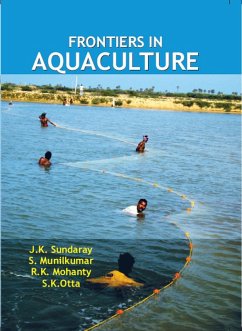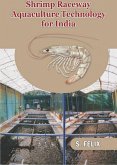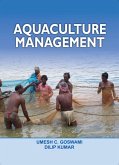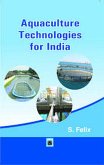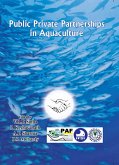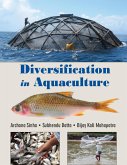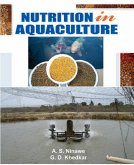The fisheries sector in India has registered a commendable nine-fold growth during the last six decades. Today, India ranks third in the world in fish production and second largest producer of inland fish. With an annual production of over 6.8 million tones that accounts for a turn over of Rs 360 billion; fish contributes to more than 1% of the national GDP and 5% of the agricultural GDP. Fish production is growing at a steady pace of 4.6% (inland 6.2% and marine 3%) against 2.4% growth of agriculture as a whole. During the past two decades, inland aquaculture production has increased to 2.9 million tones, with carps alone contributing over 85%. To sustain the self-sufficiency attained through blue revolution, it is necessary that we develop a suitable aquaculture system, which will maintain soil fertility and productivity with greater acceptance of biological principles. It is thus essential to look at the present farming practices with emphasis on an integrated concept of sustainable farming that enhances the quality of environment and natural resource base while ensuring increased productivity. The present level of fish production can further be enhanced through judicious application of science and technology in aquaculture and will assure higher productivity. This will also meet the growing demand for domestic consumption, export and will create employment opportunity and income generation. In order to focus attention for accelerating the development of aquaculture in India, compilation of recent works by the researchers/ scientists has been carried out under three broad sections such as 1) Aquaculture and Management, 2) Genetics and Biotechnology and 3) Nutrition, Physiology and Health. The first section 'Aquaculture and Management' give an overview on various aspects of aquaculture, broodstock management, water quality, fish health management, live food organisms and their role in aquaculture, bio-security aspect, scope, potential and advances in ornamental as well as rice-fish culture. The second section 'Genetics and Biotechnology' deals with application of biotechnology, marker assisted breeding programme, cell culture technique, molecular diagnostics etc. Similarly, the third section 'Nutrition, Physiology and Health' give an over view on fish nutrition and physiology, immunomodulation and defense mechanisms, immunostimulants, probiotics and prebiotics, advances in vaccine development, stress physiology etc. This book comprises 23 important articles by eminent scientists on different aspects of aquaculture and will serve major concerned to improve aquaculture productivity in India. It has been our sincere effort to bring together the rich experience of researchers from various institutes spread across the country and abroad to shed light on the current and future trends in different aspects of aquaculture. We hope that this book will find its place on the reading tables of students, researchers, development officers and farmers as whole and contribute towards the growth of aquaculture in this country. We express our gratefulness to all the contributors who have shared their knowledge and considerable patience for bearing with us during the long editorial process. We would also like to thank Shri. Jitender Jain of Narendra Publishing House who have made it possible for the book to see the light of the day.
Dieser Download kann aus rechtlichen Gründen nur mit Rechnungsadresse in A, B, BG, CY, CZ, D, DK, EW, E, FIN, F, GR, HR, H, IRL, I, LT, L, LR, M, NL, PL, P, R, S, SLO, SK ausgeliefert werden.

